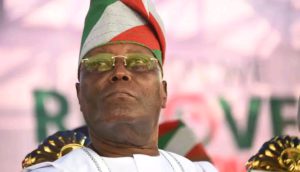NAWOJ President Advocates for Female Journalists’ Welfare During Hajj Coverage

By Faisal A Harande
In a significant development, Comrade Aisha Ibrahim, President of the Nigeria Association of Women Journalists (NAWOJ), has called for special considerations for female journalists covering the Hajj beat. This appeal comes as millions of Muslim faithful from around the world converge for the sacred pilgrimage.
Speaking from Saudi Arabia, where she is leading an official delegation to cover the Hajj for Borno State as the Director of Information, Borno State Hajj Commission, Comrade Ibrahim highlighted the physical and logistical challenges that journalists, particularly women, face during this 35-to-40-day assignment. Despite the fulfillment of performing Hajj, one of Islam’s five pillars, and serving humanity, the NAWOJ President emphasized the need for support.
Comrade Ibrahim stressed that female journalists are essential in handling issues concerning women during the Hajj, given the diverse cultures and backgrounds of pilgrims. She noted that women often face unique challenges during the exercise, and having female journalists on the ground can provide critical insights and support.
The NAWOJ President praised the Borno State model, which includes both male and female journalists in its Hajj coverage team. She urged other states and the National Hajj Commission to adopt this approach, ensuring that female journalists are adequately represented and supported.
As the Hajj continues to provide a platform for fostering global relationships and broadening knowledge, Comrade Ibrahim’s appeal highlights the need for improved working conditions for female journalists. By prioritizing their welfare and inclusion, the Hajj Commission can ensure more comprehensive and nuanced reporting.
The Hajj pilgrimage is a significant event that attracts millions of pilgrims from around the world. Effective media coverage is crucial in capturing the essence of this spiritual exercise. By supporting female journalists, the National Hajj Commission and state governments can promote more diverse and inclusive reporting.






